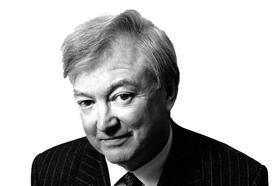Although expert witnesses speak for just one side, their first loyalty must be to the truth ÔÇô otherwise they risk prosecution

I will start this story with a spoiler: the expert witness in the case was committed to prison for six months, while his instructing solicitor got 15 months. They were both found guilty of concocting an expertÔÇÖs report that was so wrongful it amounted to contempt of court; it was an interference with the administration of justice. And this wasnÔÇÖt a whopper of a case but a tiddler.
The lesson here is not just for expert witnesses: it is for anyone who engages in any conduct ÔÇô any conduct ÔÇô that involves an interference with due administration of justice. Even in an everyday dispute, proceedings for a committal to prison for contempt of court may be brought against a person who makes, or causes to be made a false statement in a document verified by a statement of truth, without an honest belief in its truth. That includes expert witnesses of fact who knowingly advance a false story, knowing it is likely to interfere with the course of justice.
It is an ordinary human flaw for an expert who joined a team fighting a case to take sides. ThatÔÇÖs not contempt of court, itÔÇÖs just the way of things ÔÇô but the urge to win can get out of hand
In the case in question, a Toyota collided with a taxi. The taxi driver said he had suffered injury ÔÇô whiplash, shock and the like ÔÇô and made a claim for damages. His solicitor sent him for a medical assessment. The doctorÔÇÖs expert report noted mild pain and stiffness in the neck and said these would all be resolved within the week of the road accident. The victim was a tad miffed, so his solicitor suggested to the medical expert that he review his clinical notes and prepare an amended report. Can you see what is coming?
The expert, at the drop of a hat, revised his report, producing a new, backdated version with a somewhat different complexion. The poor taxi driver would now suffer for six to eight months from the date of the accident, the report said. There was no medical re-examination, just a new report. A date was set for a trial.
But for a small snag, the court would have had only the amended report to look at. Seemingly, the solicitorÔÇÖs paralegal assistant compiled the court bundle but included both the original and amended expert reports.
The judge then asked what was going on.
Expert witness reports raise several worries. First, it is not that long ago that it was common practice for a legal team to hunt around for that famous kind of expert called the ÔÇťhired gunÔÇŁ ÔÇô willing to give any opinion that helps the side paying them. Second, the tribunal ÔÇô whether court, arbitrator or adjudicator ÔÇô is often highly influenced by what an expert has to say. Third, it is an ordinary human flaw for an expert who joined a team fighting a case to take sides. ThatÔÇÖs not contempt of court, itÔÇÖs just the way of things ÔÇô but the urge to win can get out of hand.
Now, a very ordinary building construction dispute these days will have several documents signed as a statement of truth. They will include the statement of case, the factual witness statements, and sometimes an expert witness report expressing opinions. The judge considers the evidence, conscious of the fact that each person may have an interest of their own to serve and may have accordingly tailored their evidence. Civil contempt cases put the burden of proof on the party alleging contempt. The accusation will be that the accused knew that the statement was false or was reckless as to whether it was true or false and the false statement was intended to interfere with and/or was likely to have interfered with the course of justice.
In the case here, Liverpool Victoria vs Zafar, the judge said that when the expert was asked to amend his report he was so busy that he gave no thought to whether the amendments were justified and did not care whether the amended contents of the report were true or false. He just did what he was asked to do by the solicitor. There had been no evidence of the greater pain when the taxi driver was examined.
Here is the warning by the courts at high level: ÔÇťFalse claims undermine the court system in a number of serious ways. They impose upon those liable for such claims the burden of analysis, the burden of searching out those claims which are justified and those claims which are unjustified. They impose a burden upon honest claimants and honest claims, when in response to those claims, understandably those who are liable are required to discern those which are deserving and those which are not.
ÔÇťQuite apart from that effect on those involved in such litigation is the effect upon the court. Our system of adversarial justice depends upon openness, upon transparency and above all upon honesty. The system is seriously damaged by lying claimants. It is in those circumstances that the courts have on numerous occasions sought to emphasise how serious it is for someone to make a false claim, either in relation to liability or in relation to claims for compensation as a result of liability.
ÔÇťThose who make such false claims if caught should expect to go to prison. There is no other way to underline the gravity of the conduct. There is no other way to deter those who may be tempted to make such claims, and there is not other way to improve the administration of justice.ÔÇŁ
Tony Bingham is a barrister and arbitrator at 3 Paper ║├╔ź¤╚╔˙TVs, Temple



























1 Readers' comment